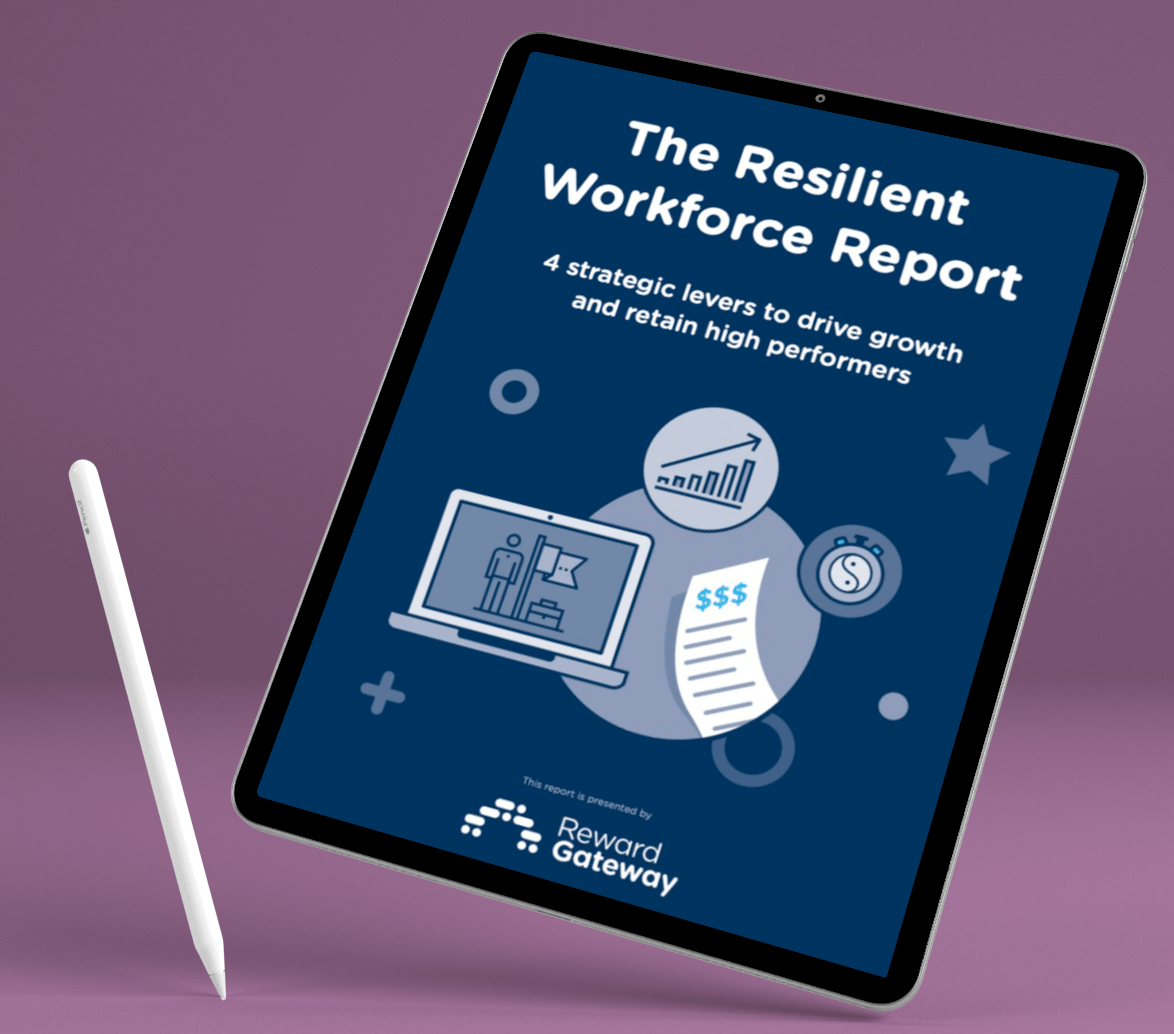As we cast our gaze toward 2024, staying ahead of change demands a keen understanding of emerging and ongoing trends. To chart a course for effective and forward-thinking workforce management, HR leaders and their organizations need to take a close look at what’s happening – not just in the industry and their market, but also in employee engagement and needs across the country.
Reward Gateway conducts regular market research to understand changes in employee engagement and HR dynamics. We value insights from both hard research and our leaders and employees, ensuring preparedness for the future workplace.
This is just one set of 2024 HR predictions, though. To get more insight, check out this post from our Head of People, Nebel Crowhurst, 2024 HR predictions on hiring practices, soft skills and more and this one from Alexandra Powell, our Director of Client Cultural Insights, 2024 HR predictions: Measuring employee engagement and wellbeing success.
What do you think will be the biggest trends, changes, or challenges for employee recognition in 2024? How will these impact employee experiences?
All of our research over the past two years has shown that people want more recognition for their hard work – 75% said morale and motivation would improve if they just heard “thank you” more often.
Companies that invest in recognition programs are going to have better retention rates than those that neglect recognition, because people who feel appreciated are more likely to be higher performing and more engaged with their work. As employee recognition increases in focus on priority, there will be a larger shift to ensuring companies and leaders are intentional with their recognition. This means recognizing your employees for what they value and doing so in a way that they value. Not everyone wants to receive recognition for the same thing or in the same manner.
What workplace shifts do you anticipate for 2024? How will these shifts or new technologies impact HR professionals, employees, etc.?
It’s no secret that in 2024 we’ll see an increased use in AI. As technology equips individuals with job-specific skills, we can expect to see a notable change that places a heightened emphasis on soft skills - like resilience, creativity, and communication, as these are skills AI cannot currently fulfill. HR professionals will find that adaptability and human-centric skills become increasingly crucial in navigating the evolving professional landscape - and will be key for hiring practices.
To clarify, “hard” skills – or the technical and functional skills employees use every day to do their jobs – aren’t sinking in importance within the next three to five years while AI continues to develop in its capabilities and power. AI and machine learning are clever tools that still require a human to apply creatively and successfully, so it’s not the time to start neglecting your “hard” skills, whatever industry you’re in.
 With mental health remaining a top concern, will wellbeing or other benefits evolve next year? Will organizations integrate wellbeing into their core values and strategies? Do you anticipate any new unique offerings as the workplace landscape largely remains hybrid?
With mental health remaining a top concern, will wellbeing or other benefits evolve next year? Will organizations integrate wellbeing into their core values and strategies? Do you anticipate any new unique offerings as the workplace landscape largely remains hybrid?
The broad increase in focus on wellbeing from an employer standpoint is a step in the right direction, culturally speaking. People spend the majority of their day at work – whether that’s in a home office or a corporate office or elsewhere – and 20% of employees we surveyed have said that the last few years of uncertainty have had a major impact on their mental and social wellbeing.
How do you think AI is evolving to enhance employee wellbeing in 2024? How will this technology impact HR and business leaders? What about employees?
Over the past year, we saw AI increasingly becoming more personalized, offering tailored solutions to meet individual needs at the right times of need. For HR and business leaders, this means a more data-driven approach to understand and address employee needs, leading to more targeted and effective initiatives. Additionally, AI is transforming mundane tasks and processes - from automating daily tasks to allowing HR professionals to focus on strategic, people-centric initiatives.
 With the boomer generation beginning to retire, how can HR and business leaders begin succession planning to ensure the the younger generations are poised to take on these growing leadership roles? How can employers attract younger generation while retaining other generations?
With the boomer generation beginning to retire, how can HR and business leaders begin succession planning to ensure the the younger generations are poised to take on these growing leadership roles? How can employers attract younger generation while retaining other generations?
To attract and retain younger generations, employers should focus on creating a workplace culture that aligns with their values. This would include flexible work environments, an emphasis on work-life balance, and opportunities for skill development and advancement. Additionally, recognizing the diverse strengths of each generation is essential, as a multi-generational workforce brings a variety of perspectives and skills. Implementing inclusive policies that acknowledge and accommodate different work styles and preferences can help improve retention of both generations.
Schedule a call with one of our friendly employee engagement experts to learn how Reward Gateway can help to make your corner of the world a better place to work.

 Anthony Knierim
Anthony Knierim

